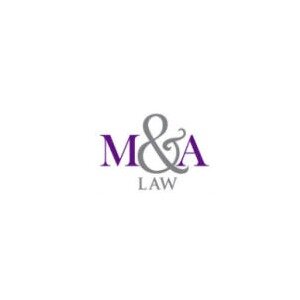Best Native People Lawyers in Colombo
Share your needs with us, get contacted by law firms.
Free. Takes 2 min.
List of the best lawyers in Colombo, Sri Lanka
About Native People Law in Colombo, Sri Lanka
The subject of Native People law in Colombo, Sri Lanka, primarily pertains to the rights and interests of the Sinhalese and Tamil communities, as well as other minor ethnic groups. This area of law often involves land rights, cultural preservation, political representation, and group-based discrimination. The laws attempt to cater to the unique socio-political circumstances of these groups and protect their constitutional rights.
Why You May Need a Lawyer
Instances where you may need legal help regarding Native People law include land disputes, heritage sites conservation, alleged discrimination cases, and advocacy for political and socioeconomic rights. Lawyers specializing in this field also provide assistance in dealing with governmental bodies and institutions related to native affairs and navigating the administrative and legal path.
Local Laws Overview
Relevant local laws associated with Native People in Colombo, Sri Lanka are enshrined in Sri Lanka’s constitution. They include provisions related to freedom of expression, protection against discrimination, preservation of cultural heritage, and land rights. Additionally, there are specific laws regarding political representation, especially for areas with high concentration of native population.
Frequently Asked Questions
Who are considered Native People in Sri Lanka?
The Sinhalese people are considered the native population of Sri Lanka. However, numerous ethnic groups including the tamils have long histories on the island.
What rights do the Native People have according to the law?
The constitution of Sri Lanka protects the rights of the native population. These rights include freedom of expression, non-discrimination, cultural preservation, land rights, and political representation.
Can I file a lawsuit in case of discrimination based on my ethnic identity?
Yes, the constitution of Sri Lanka prohibits any form of discrimination based on race, religion, language, caste, sex, or any one of such grounds. Cases can be taken to court for violation of these provisions.
What is the process to reclaim ancestral land?
Reclaiming ancestral land usually involves demonstrating historical ownership and possession of the land. This often requires legal counsel to navigate the legal complexities.
How can I contribute towards the preservation of my cultural heritage according to the law?
The law provides provisions for the establishment of non-governmental organizations and avenues to advocate for the preservation of cultural heritage. It also encourages participation in administrative and conservation projects related to cultural heritage.
Additional Resources
Organizations such as the National Indigenous Peoples' Alliance of Sri Lanka (NIPAS) and the Centre for Policy Alternatives (CPA) can provide valuable resources. Government bodies involve in this area include the Ministry of National Integration and Reconciliation and the Department of Archaeology.
Next Steps
If you need legal assistance in Native People law, consider reaching out to a lawyer who specializes in this field. You can also seek advice and assistance from relevant non-profit organizations and governmental bodies. It is crucial to understand your unique situation, gather necessary documents, and prepare to articulate your concerns and queries to your lawyer.
Lawzana helps you find the best lawyers and law firms in Colombo through a curated and pre-screened list of qualified legal professionals. Our platform offers rankings and detailed profiles of attorneys and law firms, allowing you to compare based on practice areas, including Native People, experience, and client feedback.
Each profile includes a description of the firm's areas of practice, client reviews, team members and partners, year of establishment, spoken languages, office locations, contact information, social media presence, and any published articles or resources. Most firms on our platform speak English and are experienced in both local and international legal matters.
Get a quote from top-rated law firms in Colombo, Sri Lanka — quickly, securely, and without unnecessary hassle.
Disclaimer:
The information provided on this page is for general informational purposes only and does not constitute legal advice. While we strive to ensure the accuracy and relevance of the content, legal information may change over time, and interpretations of the law can vary. You should always consult with a qualified legal professional for advice specific to your situation.
We disclaim all liability for actions taken or not taken based on the content of this page. If you believe any information is incorrect or outdated, please contact us, and we will review and update it where appropriate.















